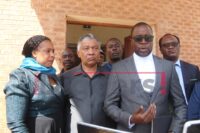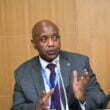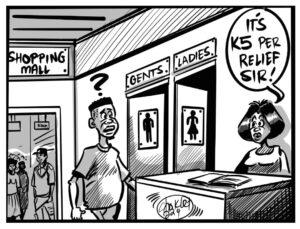Jesuit Centre for Theological Reflection (JCTR) head of programmes Geoffrey Chongo says the looming fuel increment will have adverse effects on the already-overburdened Zambian economy, with the cost of living set to escalate further in the New Year.
Commenting on Energy Minister Mathew Nkhuwa’s announcement of an imminent fuel pump price hike following the kwacha’s sharp depreciation against major currency convertibles, Chongo warned that some citizens would be killed due to failure to cope with high living standards.
The last fuel price increment, the Energy Regulation Board (ERB) effected was on September 24 where the regulator hiked prices by five per cent, with a litre of petrol is now selling at K15.98 from K15.20, mainly triggered by the depreciating kwacha and high oil prices on the international market.
“We knew we wouldn’t be surprised with the increased fuel prices, I think because of what has been happening with the exchange rate. I think the kwacha has depreciated significantly in the last few weeks, which definitely makes importation expensive and probably pushes the cost of living. The impact will be adverse, currently the cost of living is very high. However, government can justify the increase, its impact is obvious, it will be adverse on the ordinary Zambian; one, the cost of living is already high. Secondly people’s income are still low, most people’s income are below the national average income,” Chongo said in an interview in Lusaka, Wednesday.
“The national average income, I think if you look at, the Central Statistics Office (CSO) report, the average (monthly) income is around K3,000 to K4,000 somewhere there, now our basket is over K5,000 (per month)! Thirdly, the majority are unemployed, there is no business in Zambia because of the load shedding; money is difficult to find; interest rates are high in the banks; the business environment is harsh, meaning those who are in business, it is tough at the moment to make money and meet the cost of living. People are struggling, currently, and you can’t afford to put more pressure on them. And you know how the beginning of the year is: children have to go to school, people have to find farming inputs, the pressure for money is still so high. So, to increase the cost of fuel…we are killing people!”
He observed that the local currency’s continued depreciation was mainly due to government’s excessive debt repayments.
“So, really, this increase already is going to add to the already existing problems. The electricity supply is already affecting business, companies are struggling to produce and then they increase fuel that will further increase the cost of production. And the only way producers can recover their cost of production is by increasing the price of commodities. So, they are passing on the cost to consumers who probably have no way out because their disposable incomes are still far,” he added.
“We need to stabilize our kwacha; as long as our kwacha continues depreciating the effects will continue hammering us! This depreciation is coming from debt. You know, the country has accumulated enough debt that the repayments that we are making require them to demand dollar, because we owe in foreign currency. So, we need to look for dollars for us to pay our creditors. So, we really need to manage the factors that are putting pressure on the kwacha, otherwise the price of fuel will keep on increasing and making people lives miserable.”
And he said the the country’s economic outlook next year remained depressed.
He observed that although rainfall had commenced in some parts of the country, government’s continued delay to distribute farming inputs would affect agricultural output next year.
“The impact is adverse looking at next year. Next year also doesn’t look promising; we seem to be receiving the rains, so if our agricultural (sector) will perform; if people will grow crops and harvest, that might address some of the challenges we’re facing regarding cost of living. But again, the challenge that you have is distribution of farming inputs. We seem not having been prepared! Government is not paying the agro dealers, agro dealers cannot distribute fertilizer and other farming inputs. So, even with good rains, we’re not having very good harvest. These sectors are very key when determining the cost of living and when determining the performance of the economy,” said Chongo.
“Really, 2020, doesn’t look promising for us. This why we have been asking that we look for long-term solutions to deal with issues of energy, to deal with the issues of agriculture, but also to deal with the issues that are putting pressure on our exchange rate.












